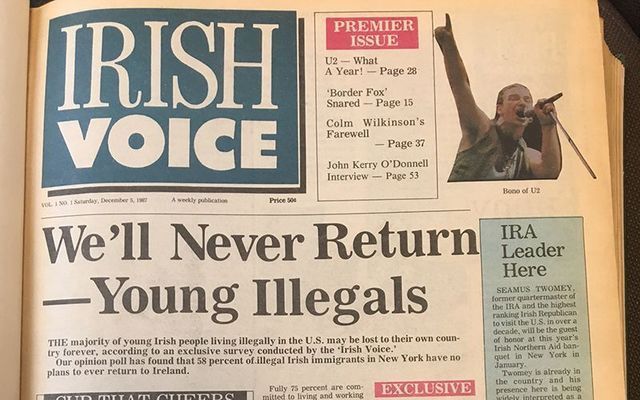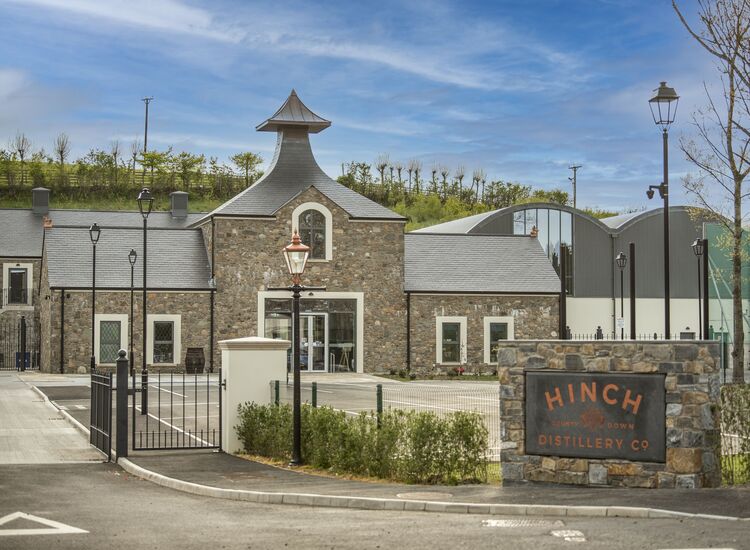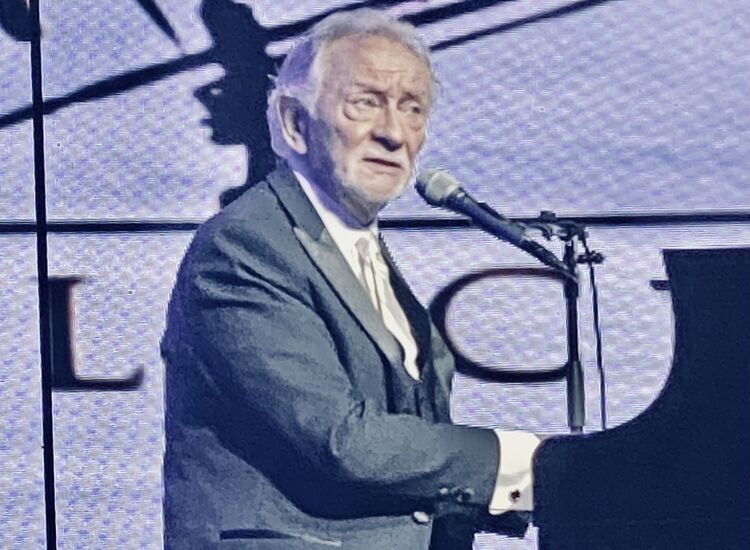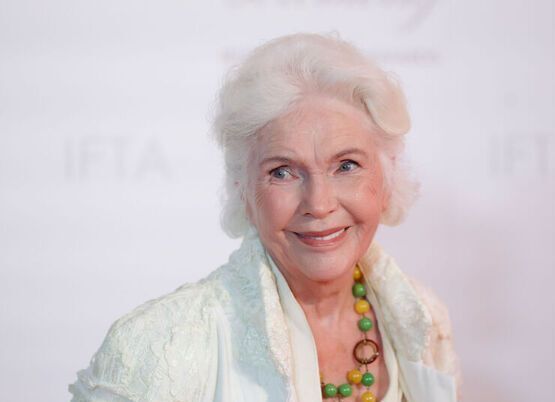Two weeks ago Niall O’Dowd, founder of the Irish American newspaper The Irish Voice, announced that it was to close after 36 years.
The New York-based Irish Voice and the Irish Echo were the principal sources of news for decades of Irish Americans and new Irish immigrants moving to the USA. Now the Irish Voice is gone.
But a far sighted Niall O’Dowd realized some years ago the direction of travel for newspapers competing against the huge growth in online media services and founded the online Irish Central. Today. IrishCentral.com gets over two million visitors monthly.
I first met Niall in Belfast in 1983. He was interviewing me for an Irish newspaper in San Francisco which he then edited. I had been elected as the MP for West Belfast and Niall was interested in the political developments taking place in the aftermath of the 1981 hunger strike.
Sinn Féin had won five seats to the Assembly in 1982 and received over 100,000 votes in the June 1983 Westminster general election. I had only recently been unbanned from traveling to Britain (it was re-imposed some years later) and Section 31 in the South, which prevented Sinn Féin representatives from appearing on radio or television, was deeply embedded in the political and media establishment. It still is in some quarters, particularly the old guard at RTE.
The first issue of the Irish Voice in December, 1987.
Later, when Sinn Féin established our peace strategy and my meetings with John Hume became public Niall was among the first to recognize their significance. He played a central role in creating the opportunity for presidential hopeful Bill Clinton to state publicly his support for a visa for me and for a special envoy to be appointed and he was key to the engagement with the group of Irish Americans – the Connolly House Group – who helped create the conditions for the IRA cessation in 1994.
A measure of the importance of the role of Niall O’Dowd and of the Connolly House group was recalled later by Conor O’Cleary, the Irish Times journalist based at that time in the USA. He provides a sense of the secret machinations that were part of the process: “One foggy summer evening in Dublin, around the middle of August 1994, a man stood waiting outside the Irish Independent office in Middle Abbey Street. Out of the mist, an attractive woman appeared and approached him. She asked, "Do you think Dublin will win on Sunday?" Recognising the code words, he handed her a document and they both walked off in different directions.
The woman was from Sinn Féin , and the document she was given was one drafted by Niall O'Dowd. In the document the Irish-American "peacemakers" committed themselves to a campaign to achieve certain goals if an unarmed strategy was pursued by the republican movement.
The list of attainable goals included: unrestricted access to the U.S. for Gerry Adams and other Sinn Féin members; parity of treatment with other Northern Ireland leaders in Washington; the opening of a nationalist office in Washington; U.S. government support for the peace process with the aim of getting Washington to act as a guarantor of any agreements in Northern Ireland; and the promotion of Irish-American business and investment in the North of Ireland.”
As part of the follow-up, the Irish American group returned to Ireland on 25 August. The group included Niall O'Dowd, Bruce Morrison, Bill Flynn, Chuck Feeney, Joe Jamison and Bill Lenihan. They were a crucial part in creating the right atmosphere for the IRA cessation that was announced on 31 August 1994.
My personal connection with the Irish Voice began in 1993 when I suggested to Niall that I write a column for the Voice. He promptly agreed. It became an important means by which the Sinn Féin analysis and political initiatives could be explained to Irish America.
The weekly articles included comment on President Mary Robinson’s visit to West Belfast and the brouhaha that was created around us shaking hands; the craziness of my 48 hour visa to New York; the IRA cessation; the joint meeting with Albert Reynolds and John Hume; my regular visits to the USA; the visit by President Clinton to Belfast and the many ups and downs of the peace process. The columns and the two books that were published from them: "An Irish Voice; The Quest for Peace," and "An Irish Journal," are a diary of those days.
The articles were not all serious. Like this column, they meandered all over the place – but always trying to provide the reader with an insight into the political events of the time.
But one thing is clear throughout it all and that is the power and the solidarity of Irish America with peace in Ireland and with the aim of Irish Unity. Niall O’Dowd made this latter objective absolutely clear in his first editorial written in November 1987.
He made it clear again in his final editorial. He recalled that first issue; “We stated right away that a united Ireland was the only long term solution to the failed partition of Ireland in 1922 and our stance has not changed. In fact, there are very few impartial observers who would quibble with the notion that in the intervening 36 years, prospects have never looked brighter than now for Ireland to finally unite.”
Niall O’Dowd and Voice editor Debbie McGoldrick built a crusading paper. “We are indeed an activist paper; we don’t believe in journalism that uses phrases like, ‘On the one hand and the other.’ Have an opinion and defend it.”
And for almost four decades that’s what the Irish Voice did.
So, go raibh maith agaibh to Niall, and Debbie, and all of the staff of the Irish Voice over the years for your powerful contribution to Irish America and the USA and to the Irish peace process and Ireland. And thanks also for your support and forbearance through what were often difficult and challenging times. Adh mór. See you soon
EVERY BRILLIANT THING
Listening, as I usually do on Sunday mornings, to Sunday with Miriam on RTE Radio after Sunday Miscellany I really enjoyed Altan’s tunes and Mairéad Ní Mhaonaigh’s craic. I was also very taken by the preview of "Every Brilliant Thing," which is being staged at The Galway Arts Festival.
Theatre Director Andrew Flynn gave us an insight into this play by Duncan Macmillan. Essentially, this is about a young man who starts, at the age of seven, to compile a list of those things which make his life worth living. This is while he is battling with the challenges of the different stages of his life, including his mother’s attempt at suicide.
Andrew Flynn then went on to invite all of us to compile our own list of Every Brilliant Thing in our lives. I think this is a very good idea. If you agree, make out your own list of the Ten Brilliant Things in your life. You can also email your list to everybrilliantthinggalway@gmail.com. You can do this anonymously. Here’s my list.
Family. Friends. Good Health. Peace. Nature. Books. Music. Dogs. The Gaeldom. Féile An Phobail.
WAR CRIMES IN JENIN
The Israeli government’s assault on Jenin, the Palestinian refugee camp in the occupied West Bank, left 12 people dead and scores more injured. Using bombs, Apache helicopters, drones, bulldozers and hundreds of troops, Israel’s apartheid regime imposed a reign of terror on the 14,000 people who live in Jenin. More than 3,000 civilians were displaced from their homes.
Human rights organizations have described the attack as a war crime with Israeli forces deliberately attacking civilians and medical personnel. The UN special rapporteur, Francesca Albanese, said that the Israeli actions “amount to egregious violations of international law and standards on the use of force …”
Shamefully, the international community refuses to challenge Israel in its abhorrent treatment of the Palestinian people. Some are going out of their way to defend Israel. Not surprisingly, the British government is to the fore in this. Recently it introduced new legislation – the Economic Activity of Public Bodies (Overseas Matters) Bill.
The stated objective of this legislation is “prevent public bodies from being influenced by political or moral disapproval of foreign states when taking certain economic decisions …"
In other words, the British government is outlawing public bodies, including local authorities, pension funds and universities, from boycotting, refusing to invest in, or disinvesting from “(a) Israel, (b) the Occupied Palestinian Territories, or (c) the Occupied Golan Heights." No other state is mentioned in the legislation.
If you want to support the Palestinian people one way is to endorse the Boycott, Divestment, Sanctions (BDS) movement in its work to “end international support for Israel's oppression of Palestinians and pressure Israel to comply with international law.”








